

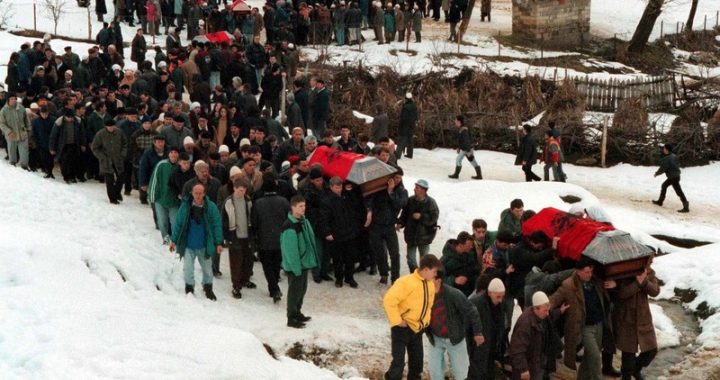 Ethnic Albanian men carry coffins covered in Albanian flags up a hill overlooking Racak, southern Kosovo 11 February 1999. A total of 40 bodies of the 45 victims of the "Racak massacre" were released by Yugoslav authorithies yesterday and given to villagers who buried them today. Tens of thousands of ethnic Albanians attended the funeral ceremony.EPA/Anja Niedringhaus
Ethnic Albanian men carry coffins covered in Albanian flags up a hill overlooking Racak, southern Kosovo 11 February 1999. A total of 40 bodies of the 45 victims of the "Racak massacre" were released by Yugoslav authorithies yesterday and given to villagers who buried them today. Tens of thousands of ethnic Albanians attended the funeral ceremony.EPA/Anja Niedringhaus
March 24 marks 23 years of North Atlantic Alliance NATO airstrikes against military police targets in the former Yugoslavia to halt ethnic cleansing of Kosovo Albanians.
The airstrikes began after the failure of talks in Rambouillet, France, where an internationally mediated peace conference was held at the time between the Serbian authorities and representatives of Kosovo Albanians.
The compromise agreement was accepted by the side of Kosovo, but not the delegation from Serbia, which later led to the decision of Western countries and NATO to launch an air campaign against Serbian military targets.
These attacks were undertaken to stop the crimes and ethnic cleansing of Kosovo Albanians by Serb forces under the command of Slobodan Milosevic.
After 78 days of attacks, the bombing ceased on June 10, 1999, with the adoption of United Nations Security Council Resolution 1244.
This Resolution was a compromise of the five permanent members of the Security Council, based on which, in Kosovo, a United Nations administration – UNMIK was established, which administered the transitional phase until the establishment of local institutions and the permanent settlement of Kosovo status.
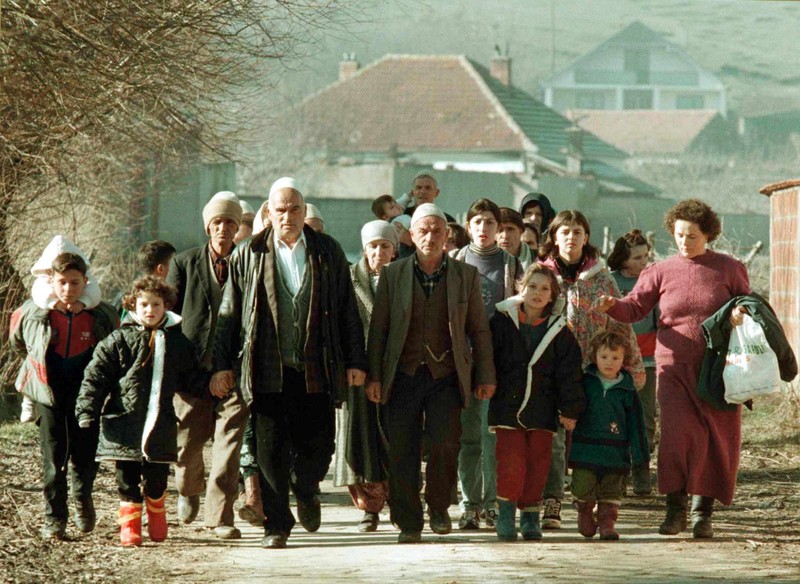
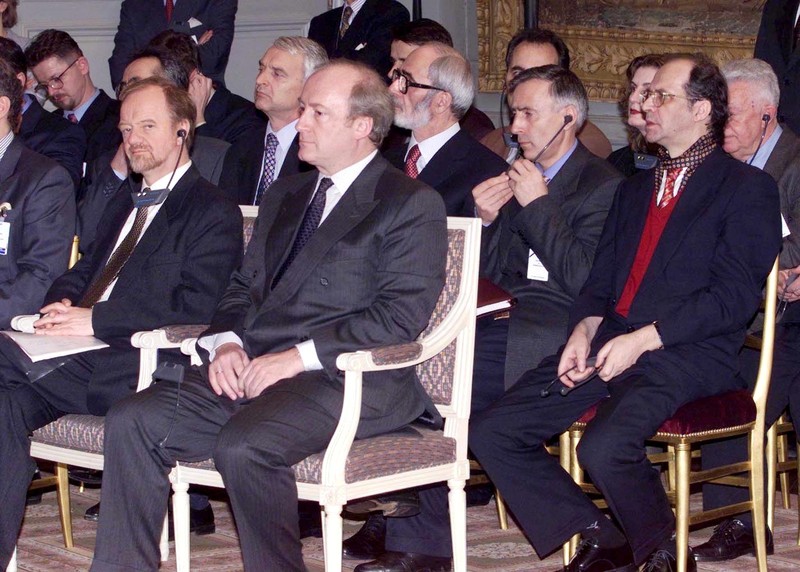
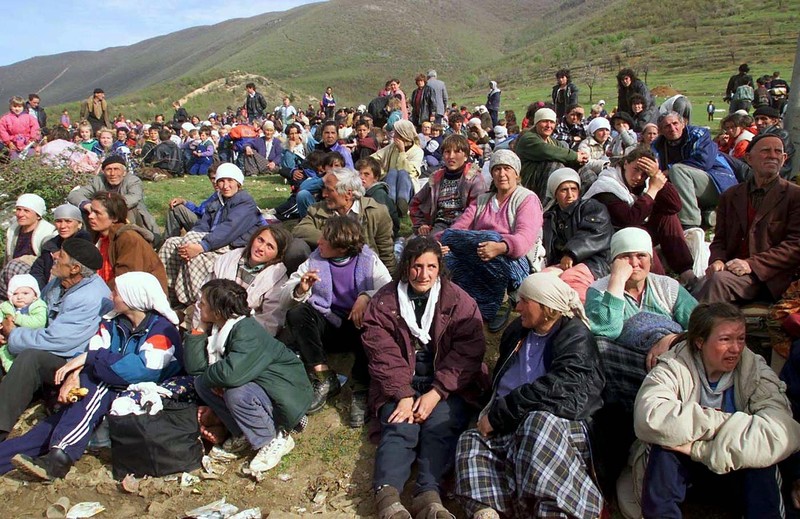
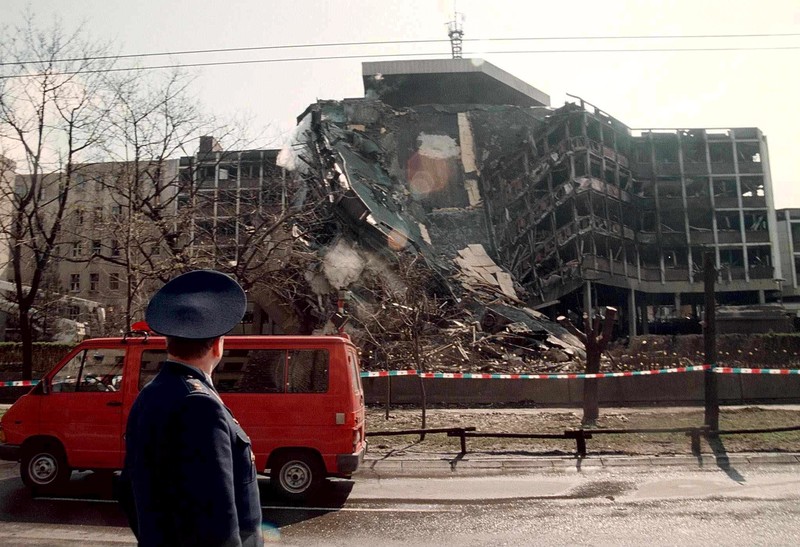
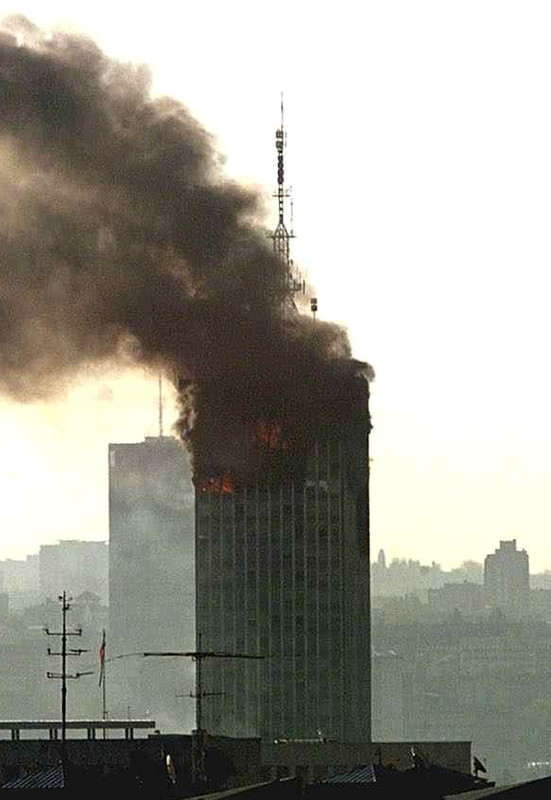
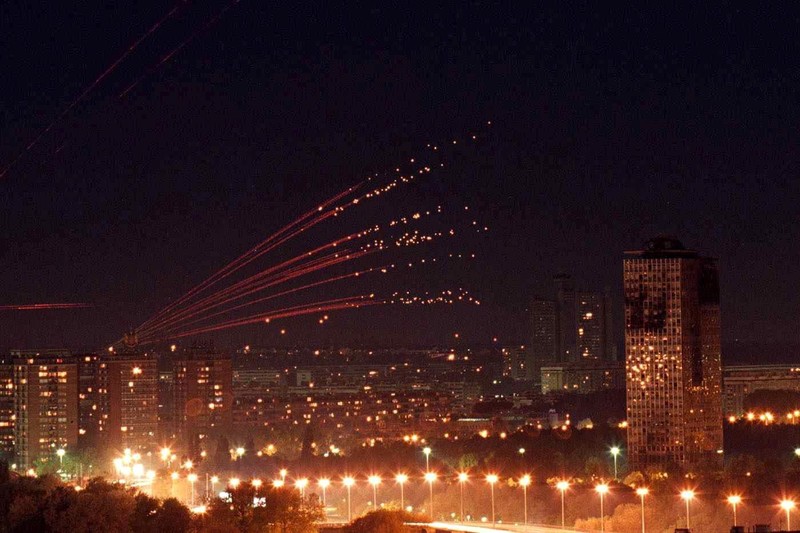
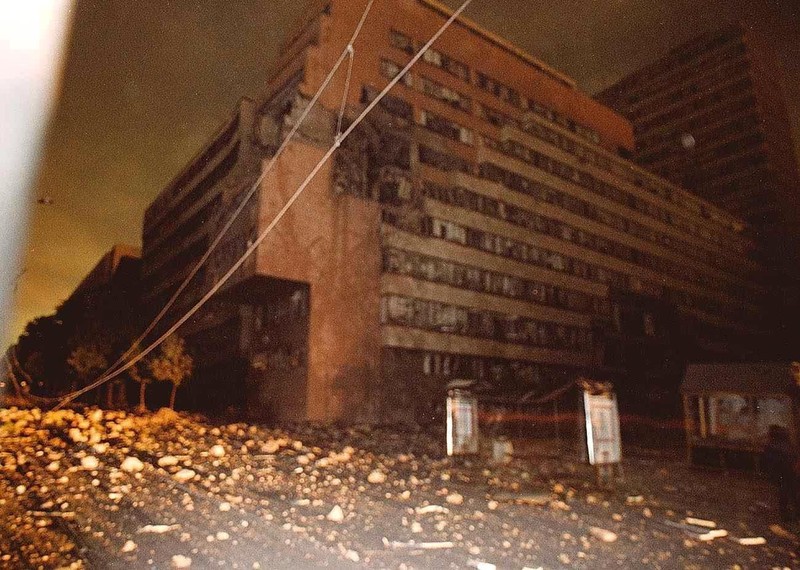
23rd Anniversary of NATO air strikes on Yugoslavia to Stop Ethnic Cleansing of Albanians in Kosovo. Photos: EPA
A day earlier, the Kumanovo Technical Agreement was signed, which provided for the withdrawal of all Serbian forces from Kosovo and the entry of international NATO troops in Kosovo.
NATO intervention in Kosovo, had enabled the return to their homes of more than 1 million refugees displaced mainly in Albania and North Macedonia.
On June 12, 1999, the deployment of some 50,000 troops from 36 countries began, of which 30,000 were from NATO countries.
Over 10,000 Kosovo citizens were killed during 1998/99 war in Kosovo, 20.000 women were raped and over 1 million were displaced.
24 March 2022 - 16:38

Kosovo’s most turbulent decade returned to the screen as Youth Initi...

The NATO-led peacekeeping force in Kosovo, KFOR, confirmed on Tuesday ...

NATO General Secretary Mark Rutte emphasised the need for leadership ...

Each party and coalition competing in the Kosovo February 9, 2025 elec...